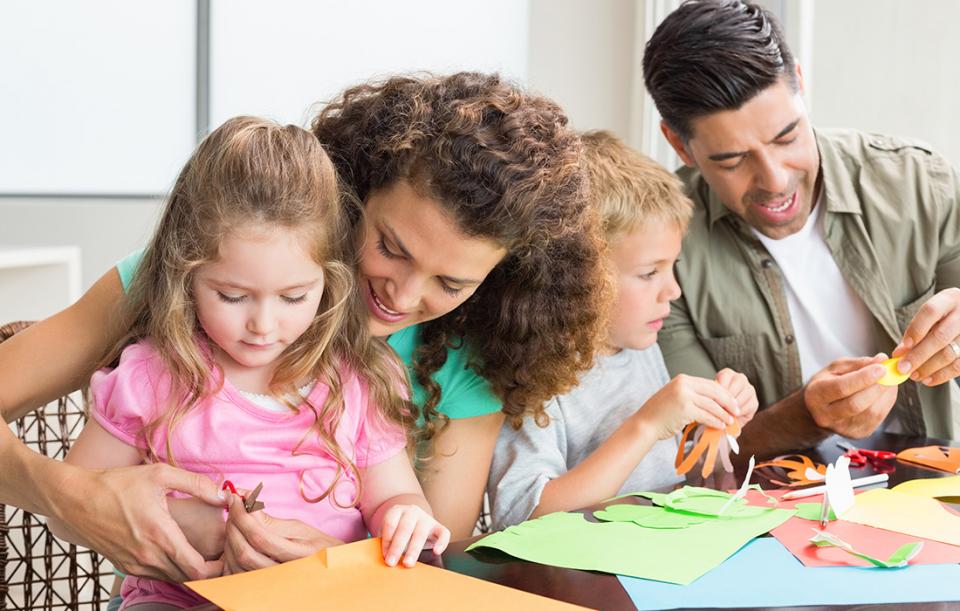 For any child, having both parents present in their life, is the best possible option as they grow and develop into young adults. Sadly, this is not always possible for a variety of reasons. However, co-parenting, if carried out properly and managed well, helps lessen any disruption that a break down in the parents’ relationship has caused.
For any child, having both parents present in their life, is the best possible option as they grow and develop into young adults. Sadly, this is not always possible for a variety of reasons. However, co-parenting, if carried out properly and managed well, helps lessen any disruption that a break down in the parents’ relationship has caused.
From sorting out the practical details such as where the child lives, to agreement around their education or contact time, getting the balance right can be difficult unless you work with professionals in family dispute mediation. The following 6 tips will help you to get the right balance at what is a very difficult time for your family unit.
- Put in place a co-parenting plan
Getting everything down on paper helps both parties set out the rights and responsibilities with your former partner and agree a way to resolve any disputes. The last thing you want is to take your disputes and details of your personal life through the Courts and family dispute mediation is normally required before starting parenting cases. Lawyers who are very experienced in dealing with this type of disputes can support the development of a co-parenting plan which covers decision making guidelines, finances, education, visitation schedules, medical needs and special events and holidays. Back up plans in case of emergencies, including named trusted adults, such as paternal and maternal grandparents should be included. If you do not feel like you can discuss these areas with your former partner, an objective third party is invaluable in resolving and mediating until an agreed plan is in place.
- Allow your former parent time to understand the role of primary carer
If you were the primary care giver, you need to allow your former partner time to get to grips with the practical side of caring for your children. From taking them to their organised after-school activities, to ensuring they have a warm clean home to stay over, this may take a while to get in place. The important point is not to criticise but to ensure your former partner feels able to ask you any questions regarding the care of your children and that you do not criticise them in front of the children.
- Keep your former partner updated
With technology these days, it is easy to have a shared online calendar of events such as sports day or parents evening, along with the routine weekly schedule for your child or children. Ensure that the school knows that both sets of parents need copies of school newsletters at the relevant email/mail address. Both of you should be able to attend concerts or sports days and take it in turns to attend at medical/dental appointments. Even though you are not connected to your former partner’s family they are still your child’s grandparents, aunts, cousins and so on, therefore include special occasions from both sides of the family on the calendar.
- Be flexible and try to accept different parenting styles
This is where family dispute mediation can be very helpful because it can be incredibly difficult if the former partners parenting style changes after you split up. Setting out the key areas that affect a child’s health and safety mean there are some givens such as “Child A has asthma and must have access to their inhaler at all times”. This is classed as an essential whereas other areas are set out in preferences “I don’t like Child B eating a lot of sweets and chocolate while at your place so can we agree a limit”. Once set out, depending on the age of the child. it is important to share parenting rules in place so they know the boundaries when staying with either parent.
- Agree the contact you have when your child is with your former partner
This has to be a positive experience for the child but it allows you to plan ahead and book some “me time” as well. Agree in advance the contact you have with your child such as brief calls or text messages. Children worry about both parents so ensure you stay sounding positive and they will feel reassured when away from you.
- Keep reminders of your former partner
This is difficult but a photo in their bedroom or when they speak about their weekend away – sounding positive about this is key. Your child still feels connected to both parents which balances your co-parenting approach.
Co-parenting is never easy but with professional help and support, you can get it on an even keel.







